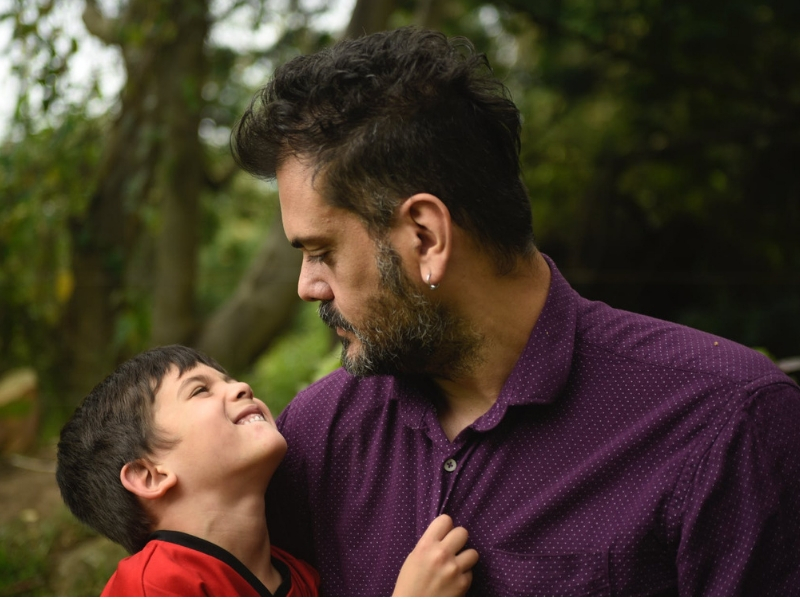What is codependent parenting?
Codependency essentially means depending on someone emotionally. In the realm of parenting, the term is used when a parent is overprotective of his child or is dependent on his child for satisfying his emotional needs. “Codependency is a new term in psychology. It occurs when parents are not able to deal with their emotional needs themselves or through their partners and rather focuses on getting that from the child,” says Dr. Anupama V., assistant professor, Department of Psychology, Acharya Institute of Graduate Studies, Bengaluru.
Sanaaz Doust, Lead for Student Wellness & Counselling at Inventure Academy explains, “Like birds with their wings clipped, they may lack the confidence they need to leave the nest and become independent. They may also lack confidence in their own judgment and decision-making abilities or, because so many problems have been handled for them, they may have difficulty managing adversity as a normal part of life.”
Fathers can be overprotective of their children, but in our culture, since mothers are typically the primary nurturer, they are more likely to fall into the codependent parenting pattern, adds Dr. Anupama.
Recommended: 13 Steps to Bloody Good Parenting
Codependent parents are unable to say ‘NO’ to children
A codependent parent is likely to keep everything else apart for making their child happy. For instance, they would be scared to discipline the child and would give in to their tantrums. They are unable to set any limit for their children and fear the child won’t like them anymore if they don’t comply with their wishes.
The term ‘helicopter parenting‘ refers to how parents are involved in every intricate detail of their children’s life including what they’ll wear, eat, their hobbies and interests – every single thing is micro-monitored by the parent. Same is the case of a codependent parent. In these cases, if the child is not agreeing to what they want, they get emotionally disturbed.
Apps such as Apple’s Screen Time and Google’s Family Link have been created for adults to manage their children’s phone. Through these, parents can limit the time their children are one phone. They can even set a limit as to what apps their children will be viewing.
Codependency is trans-generational
Codependent parenting affects both child and parent. “It is very interesting to see that adults who get into codependency pattern are often those who had similar troubles when they were younger. They had needs that were unmet when they were younger and it translates into seeking the same needs from their younger own children,” says Dr. Anupama.
She further adds, that codependency ends up being transgenerational and it is important to identify when someone is becoming a codependent parent. Codependent mothers generally have low self-esteem. They feel that what they think is good for the child is right and often tend to impose their dreams on their children.
Here are a few other signs:
- The need to be in control
- An excessive need to please others
- Anxiety and mood swings
- Worrisome
- Manipulative
- Must maintain control
- Blame self for other’s problems
- Lack of trust
- Overtly emotional
- Victim mentality
- Feeling one is always right
- Being angry most often
Recommended: Parenting-striking the right balance
Identifying the codependency pattern is imperative
It’s necessary to identify the problem. In case, the parent is unable to identify the problem herself, someone close to the victim needs to recognise it. After having identified, understanding the situation, rather than blaming, will help break the pattern.
After spotting the problem, there are a few ways to establish a trust-worthy relationship with one’s child. The parent can provide a nurturing and supportive environment by allowing the child to explore and be independent. They should take things slowly rather than rushing to fix everything. Doust further adds that guiding and encouraging the child will help build self-esteem – “Encourage your child to try new things, and to persevere with difficult tasks. Believe in your child’s ability to achieve. Most importantly, build them up with words, don’t tear them down.”
Children, who are raised by codependent parents are also likely to fall in the same pattern when they grow up. They too will need some sort of emotional validation from everybody around them. They may also become susceptible to abuse as they have difficulty in saying n and will have trouble with attachment in future relationships.
If the child figures out what codependency is and realises his parent fell under the same pattern, there are two possibilities – either he will have empathy for the parent or may get angry. It depends from individual to individual, says Dr. Anupama. But it is essential that the child too understands that whatever the parent did in such a situation was not done deliberately.
























